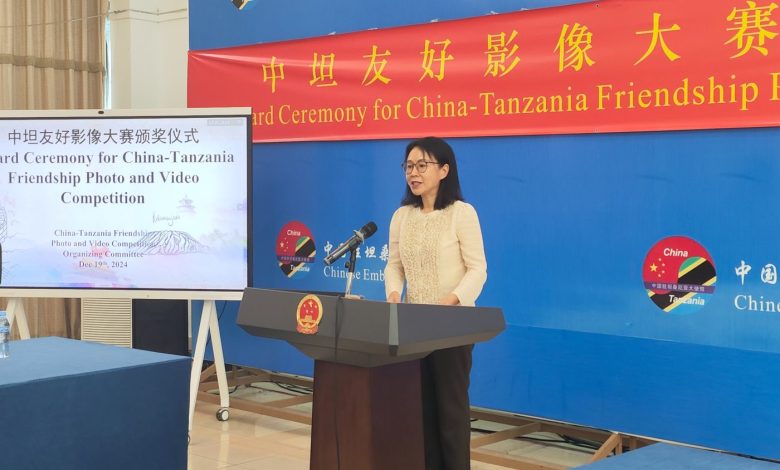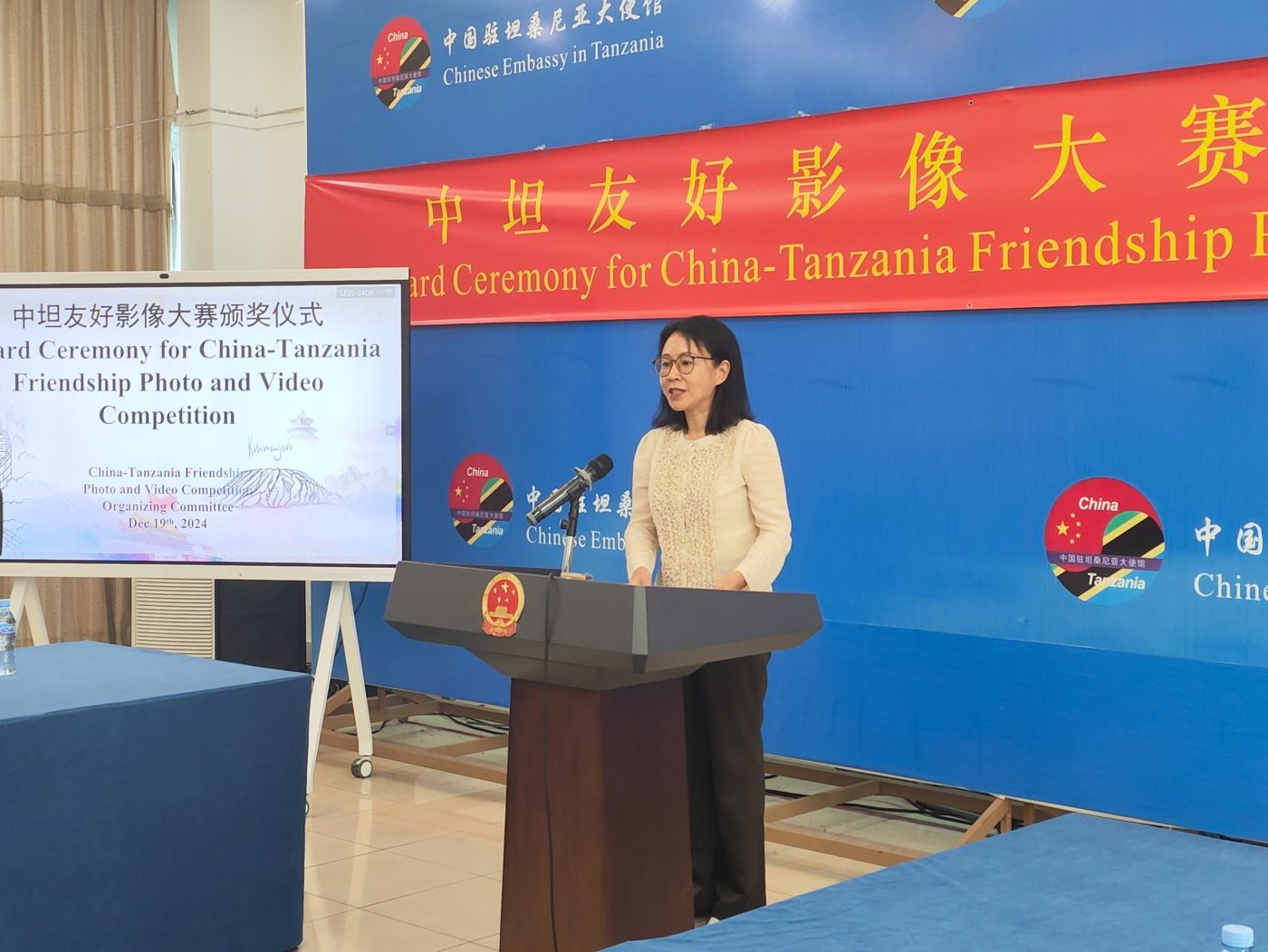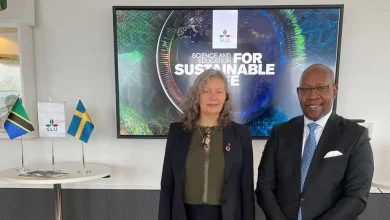Hoist the sail of future of global humanity governance

Not long ago, Tanzania’s Vice President Dr Philip Mpango and Foreign Minister Ambassador Mahmoud Thabit Kombo attended the 80th Session of United Nations General Assembly in New York.
This year marks the 80th anniversary of the victory of the World Anti-Fascist War and the founding of the United Nations. Over the past 80 years, the visions and practice of global governance, such as the international system with the U.N. at its core, the international order underpinned by international law, and the basic norms of international relations based on the purposes and principles of the U.N. Charter have made historic contributions to maintaining world peace and development. 80 years later, the trend of peace, development, cooperation and win-win is unstoppable.
At the same time, the Cold War mentality, hegemonism, and protectionism still linger. New threats and challenges continue to grow, the U.N. and multilateralism are under attack, and the global governance system is facing unprecedented challenges.
Against this backdrop, President Xi Jinping solemnly proposed the Global Governance Initiative (GGI) at the “Shanghai Cooperation Organization+” meeting in September, answering the contemporary question of “what kind of global governance system to build and how to reform and improve global governance”, injecting stability and certainty into a turbulent world. The GGI covers five core concepts, namely, adhere to sovereign equality, abide by international rule of law, practice multilateralism, advocate the people-centered approach, and focus on taking real actions, further contributing China’s wisdom and presenting China’s solution to strengthen and improve global governance.
The GGI comes at the right time. For a long time, global governance has been “western governance” and “elite governance” rather than joint governance. Many western countries believe might makes right and take the “we first” approach, which has seriously impacted international rules and order. As emerging market and developing countries rise collectively, the calls for peace, development and cooperation in the Global South are growing louder. Global South countries, including China, have proposed a series of new concepts, measures and initiatives, using collective wisdom to create highlights of the Global South on global governance. To reform and improve global governance does not mean to overturn the existing international order or to create another framework outside the current international system. Rather, the goal is to make the existing international system and institutions better at taking actions, working effectively, responding promptly and effectively to various global challenges, and serving the interests of all countries, especially developing ones.
The GGI inherits and promotes the spirit of the U.N. Charter, advocating that global affairs be decided by all, the governance system built by all, and the fruits of governance shared by all, in line with the earnest expectations of people from all countries and meeting the urgent needs of the world.
The GGI elucidates the principles, methods, and pathways that need to be followed to reform and improve global governance.
-Adhering to sovereign equality is the foremost premise. Sovereign equality is the most important norm governing state-to-state relations, and the foremost principle observed by the U.N. and all other international institutions and organizations. All countries, regardless of size, strength or wealth, shall have their sovereignty and dignity respected, their domestic affairs free from external interference, the right to independently choose their social system and development path, and the right to participate in, make decisions in and benefit from the global governance process as equals.
-Abiding by international rule of law is the fundamental safeguard. International law and rules are common standards, which should be jointly formulated, maintained, and implemented by all countries without double standards or imposition on others. In May this year, China and 32 other countries signed the Convention on the Establishment of the International Organization for Mediation, which is the world’s first intergovernmental organization dedicated to resolving international disputes through mediation and an effective measure to strengthen multilateralism. It will become a key pillar for improving global governance and a new milestone in promoting global rule of law.
-Practicing multilateralism is the basic pathway. Going it alone or resorting to bloc confrontation only exacerbates the governance dilemma. History teaches that multilateralism, solidarity and cooperation are the right way to address global challenges. Adhering to multilateralism means recognizing and respecting the equal rights of all countries, and providing an institutionalized platform for more countries, especially the vast majority of developing countries, to participate in global governance.
-Advocating the people-centered approach is the underpinning value. The people of all nations are the fundamental actors in global governance, and their well-being is its ultimate benefit. Narrowing the North-South development gap, and better safeguarding the common interests of all countries, is also a vivid example of China’s unwavering commitment to the people-centered development philosophy and efforts to integrate its national interests into global interests.
-Focusing on taking real actions is an important principle. China is a doer and go-getter for global governance, consistently fulfilling its international responsibilities, and turning the roadmap into a construction plan and the wonderful vision into substantive actions. The GGI advocates for practical implementation of systems to transform common vision into verifiable and shareable governance outcomes.

The GGI enriches the institutional framework for promoting a community with a shared future for humanity. The ancient Chinese philosopher Mencius said, “Ensuring the right conduct and upholding justice should be the way to follow across the land.” From proposing the concept of building a community with a shared future for humanity and the Belt and Road Initiative, to putting forward the four global initiatives, President Xi Jinping takes a broad view of international affairs and consistently upholds a sense of responsibility for the world, while his determination to maintain world peace and development has become stronger over time. The GGI is consistent with the Global Development Initiative (GDI), the Global Security Initiative (GSI), and the Global Civilization Initiative (GCI). Each of the four global initiatives has its own focus, yet they are mutually reinforcing. Focusing on the noble goal of building a community with a shared future for humanity, they will each be a source of positive energy to build an open, inclusive, clean and beautiful world of lasting peace, universal security and shared prosperity.
The GGI sets a new direction for China-Tanzania cooperation. Over the years, Tanzania has actively advocated for South-South cooperation, played a crucial role in regional governance platforms such as the East African Community, and become an important factor in promoting the reform of the global governance system. The GGI focuses on promoting the establishment of a more just and reasonable global governance system, explicitly opposes the monopolization of international rule-making by a few countries, and advocates for enhancing the representation and voice of developing countries in global institutions, which aligns with the common desire of developing countries like Tanzania to pursue equal and fair participation in international affairs and strengthen their capacity for independent development. China and Tanzania have a good cooperative foundation in global governance, commit to transforming ideas into practical cooperation and have made significant achievements in such areas as infrastructure construction, climate change, food security, and digital security. China has always been a sincere friend to Tanzania, and the GGI provides important guidance for us to share development opportunities and respond to global challenges. We believe that through the joint efforts of both China and Tanzania, the GGI will take root and bear fruit in Tanzania, and further benefit the two peoples.
Standing at an important historical juncture of building on past achievements and forging ahead, China will continue to stand firm on the right side of history, on the side of human progress and multilateralism. China will deliver more benefits to the world through its own development and explore the ways to reform and improve global governance together with Tanzania and other African countries, and create a better future for humanity.
The writer is Chinese Ambassador to Tanzania.





